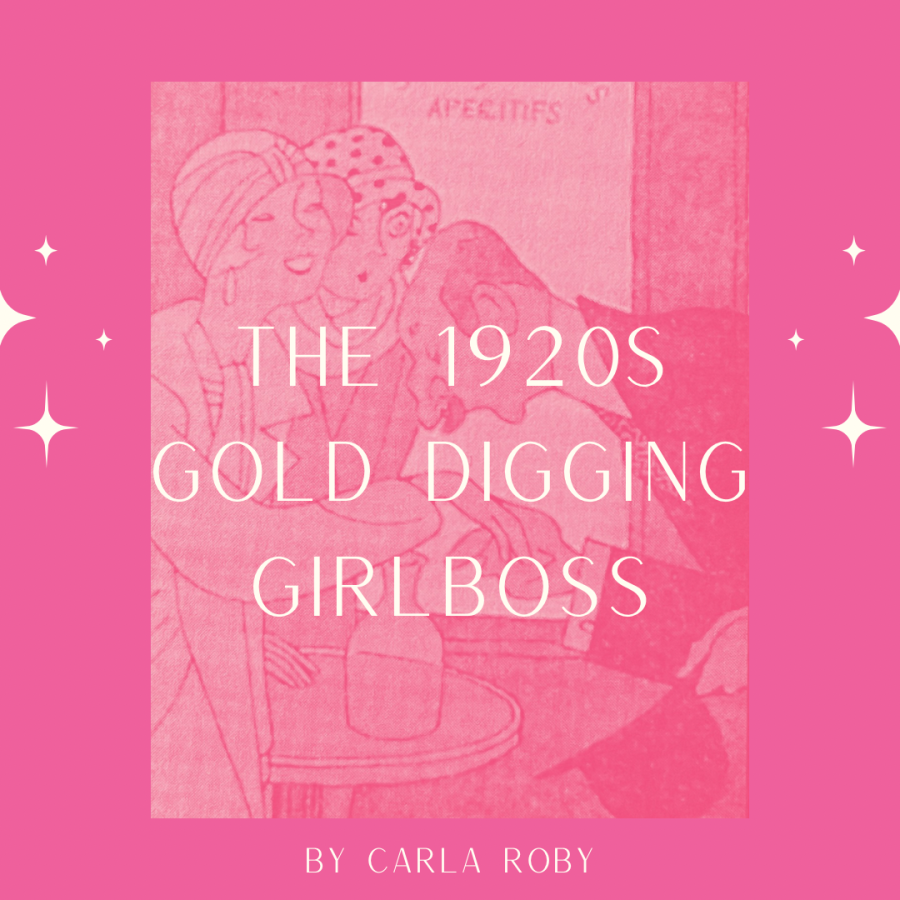1920s gold-digging girlboss
A review of Gentlemen Prefer Blondes by Anita Loos
December 15, 2022
Diaries and diamonds. Glitz and glamor. Beauty and brains. Gentlemen Prefer Blondes is a romp of journal entries from the one and only Lorelei Lee. A former Hollywood actress, currently a socialite, and always a blonde. If I were to compare her to modern day characters, she would fit into the category of Clueless’s Cher and Legally Blonde’s Elle Woods. Essentially in today’s language, she is a girlboss. An icon.
One page into the book and her wit begins to whisper between the lines. From casually mentioning Charlie Chaplin as an acquaintance to dining at The Ritz, a luxurious hotel, daily. Her exterior, initially, is perceived as a naive young woman with a very simple mind. Yet on the first page, through her diary, the reader is able to see the layers beneath her glitter and shimmer. She says about herself, “I mean I seem to be thinking practically all of the time.” And she really is. She is always thinking up her next scheme to either get into or out of an engagement–a literal one with a ring and a man professing his love to her.
The book itself follows Lorelei through her trip around Europe and back to New York in 130 pages. I had an epiphany about halfway through: this story is very similar to Forrest Gump. If Forrest Gump was about a flapper girl running around Europe coaxing tiaras out of men and dancing with the Prince of Wales in the mid 1920s. Things always seem to be happening to her and she simply goes along with it. To give an example, a judge thought her real name didn’t fit her enough so he gave her the name Lorelei (I was quite flabbergasted) and helped her get to Hollywood so she could achieve her dream of being “in the cinema.”
Written by Anita Loos, a screenwriter, playwright, and author, and published in 1925, from the beginning it was a sell out, and was eventually adapted into a movie. Yes, the one with Marylin Monroe singing “Diamonds Are a Girl’s Best Friend.” I have never seen the movie so I cannot say if the movie is accurate, but the song really captures Lorelei’s spirit. Her direct quote in the book is, “[A man] kissing your hand may make you feel very very good, but a diamond and sapphire bracelet lasts forever.” I mean, is she wrong?
Overall, I give the book 2.75 stars. I did enjoy it while reading it, but I never had the urge to pick it up. It felt repetitive about halfway through and there was very little development and a lack of world building. But that could have been a choice on the author’s part since the story is told directly through the main character’s diary. Maybe what she doesn’t write down says more about her than what she does.
The writing is clever on Loos’s part, she misspells words left and right which helps the reader understand just who Lorelei truly is. An uneducated, unmarried woman with very little skills to allow her to make money on her own. So, at first glance you might think Lorelei is a gold digger, but she really is just trying to survive. And while doing that why not with a diamond bracelet on her hand?
A very important disclaimer: the book has a few out of date terms which might be read as offensive in our current time. This book was written in 1925 and while Lorelei is not racist, she is a white privileged woman in the twentieth century. It doesn’t happen often, but if you are not in the mood to deal with it, I would suggest skipping this one.


AreJay • Dec 26, 2022 at 10:55 am
I love the analogy to Forrest Gump really gave me a better understanding. Another grand slam article!